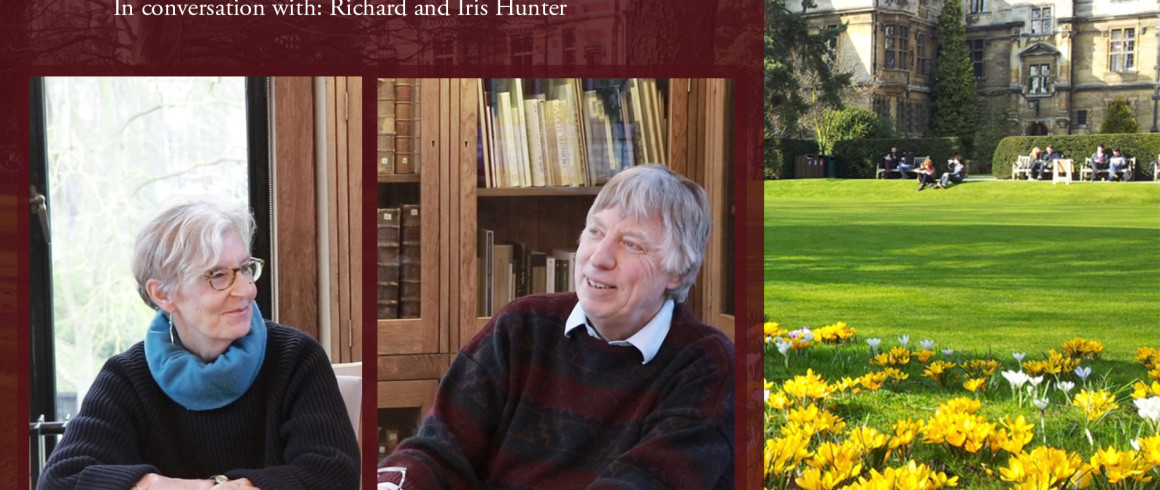IP at 40: In Conversation with Richard and Iris Hunter
To celebrate the 40th anniversary of International Programmes (IP) at Pembroke, we are doing a series of profiles in 2017 on former students and staff who were involved with IP and the effect this experience had on them or on Pembroke.
Professor Richard Hunter and Iris Hunter were involved with the very first summer programmes, at which time Pembroke only had links with the University of California. In the 1970s, when summer programmes first began, Richard was a research Fellow, and Iris joined Pembroke as social Director for the summer programmes. Richard later became Academic Director. Iris now works freelance as administrative and research support, and Richard is Regius Professor of Greek, Chair of the Classics Faculty Board, and a Fellow of Trinity College, Cambridge.
What were the students like?
According to Iris and Richard the students were both enthusiastic and hardworking, and were all keen to experience Britain and Europe during their stay. Iris pointed out that not only were many of the students leaving home for the first time – and staying a long way from home – but this was before mobile phones and emails, so communication with family was limited to use of the College phone. Many students did come in groups with friends, but their adaptability was nonetheless impressive. And most importantly, they seemed to enjoy themselves.
What was the summer programme like?
The academic and social programme kept students fully occupied during their programmes. Academically the courses were different from the Tripos papers because they were specially designed for the international students. There was, as there are now, essays to be written and exams to be taken, but the nature of the short programmes meant that the teaching content and structure had to be adapted.
Richard taught a course on drama, covering ancient drama, Shakespeare, and modern drama, such as the plays of Oscar Wilde. Both Iris and Richard fondly recalled trips to the North of England to visit cathedrals and Hadrian’s Wall, as well as theatre trips and numerous social activities such as tennis games at which, Iris admits, the students always beat them.
Why did you decide to teach on the course?
Teaching the course was part of getting to know more about American academic culture for Richard. In 1978 he and Iris had lived in Virginia for six months but when he first taught on the Pembroke course Richard had never been to California. For Richard, teaching at Pembroke College during the summer was not about quantifiable benefits so much as learning more about how to teach a group of students with a different higher education background.
What was the benefit of the programme?
At the time, Richard told us, Pembroke was ‘by no means the modern world yet” – and he considers the international summer programme as part of the process of opening up to the world. It is hard to imagine the Pembroke of 30 years ago, he said, as Pembroke now has a reputation in Cambridge for being forward thinking in its links with the ‘outside world’ and in its international perspective. Pembroke’s summer programmes were a significant beginning for this larger process.

